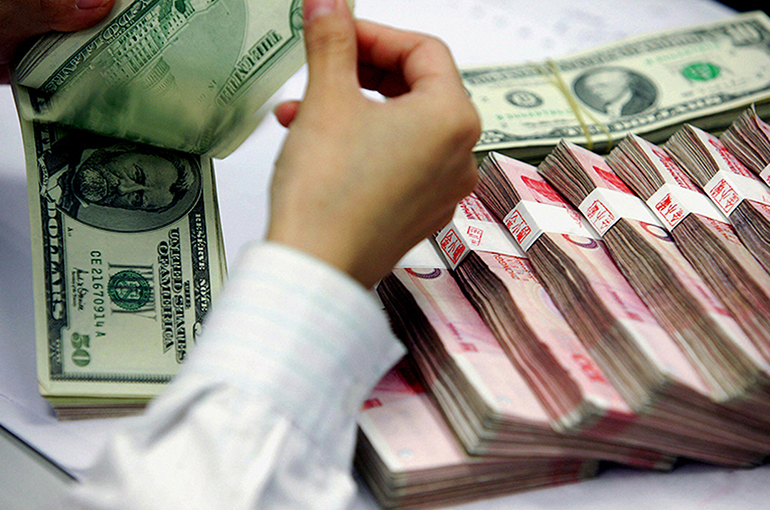 Chinese Yuan Rallies Against US Dollar; May Strengthen to 7.2 by End of 2024, Analysts Say
Chinese Yuan Rallies Against US Dollar; May Strengthen to 7.2 by End of 2024, Analysts Say(Yicai) Nov. 16 -- The offshore Chinese yuan climbed over 500 basis points against the US dollar this week. The worst is over and the redback is expected to appreciate to 7.2 by the end of next year, analysts said.
The redback will stay steady, moving between 7.25 and 7.35 to the dollar, and will likely strengthen to 7.2 at the end of 2024, said Zhang Meng, macro and foreign exchange strategist at British lender Barclays, told Yicai.
The period of the greatest depreciation pressure on the yuan is over, said Liu Jie, head of macro strategy at UK bank Standard Chartered’s China arm. The yuan will probably remain between 7.25 and 7.35 to the greenback this year. Traders’ seasonal demand for the redback at year end will boost the yuan at the end of this year as well as around the Chinese Spring Festival holidays, which happen to be in early February of 2024.
There are signs of an improvement in China-US relations, Liu said. As the Chinese economy picks up and capital outflows slow, the US Federal Reserve and the People’s Bank of China will start to adopt the same monetary policy.
Market players' cautious sentiment towards the yuan and the country’s economic growth has already peaked and the long-term China-US interest rate spread should narrow, said Zhang.
In the short run, as the greenback strengthens, the yuan will resist depreciation better than any other Asian currency, she added. This is mainly because of the protective measures that the Chinese central bank has adopted. But if the dollar weakens, the yuan may not rebound as quickly as other Asian currencies.
Stronger Measures
The yuan rate is closely tied to the country’s economic recovery. Exports and other key economic gauges are still weak, therefore the Chinese government needs to roll out stronger measures to bolster the real estate sector as well as to clear up local government debts, said Lu Ting, chief China economist at Japanese brokerage Nomura.
“Structural factors plus weakened market confidence have degraded the effectiveness of conventional stimulus policies. Standard Chartered believes that monetary policy needs to be further relaxed to assist the continued recovery of the economy,” said Li Wei, senior economist at Standard Chartered China.
There are likely to be further cuts to the medium-term lending facility this quarter and next year’s first quarter, by 10 basis points each time, the London-based bank said. And the reserve requirement ratio could be slashed by 50 bps before the end of the year, infusing more than CNY1 trillion (USD137.8 billion) into the financial system.
Editors: Tang Shihua, Kim Taylor